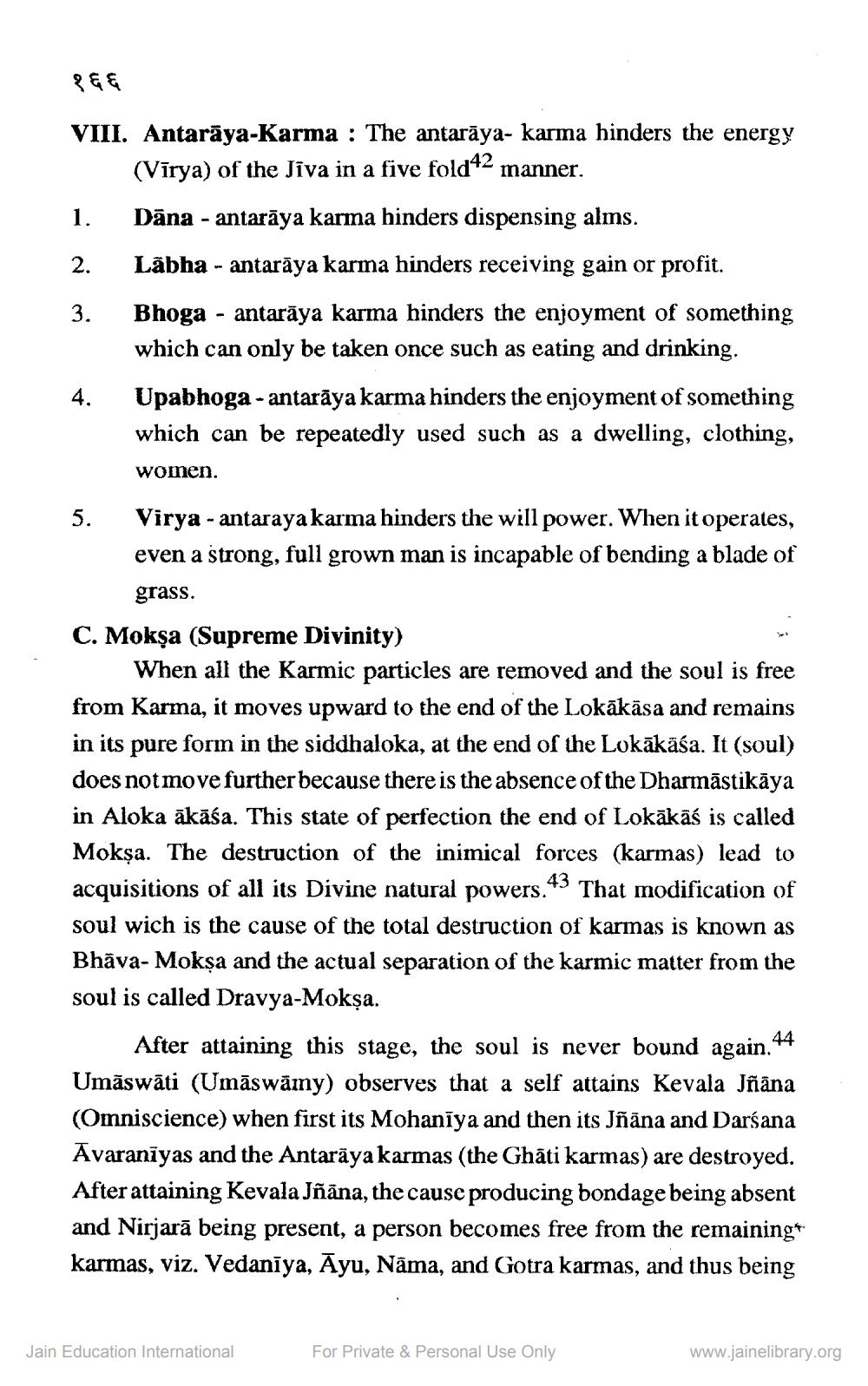________________
१६६
VIII. Antarāya-Karma : The antarāya- karma hinders the energy
(Vīrya) of the Jīva in a five fold42 manner. 1. Dāna - antarāya karma hinders dispensing alms.
Lâbha - antarāya karma hinders receiving gain or profit. 3. Bhoga - antarāya karma hinders the enjoyment of something
which can only be taken once such as eating and drinking. Upabhoga - antarāya karma hinders the enjoyment of something which can be repeatedly used such as a dwelling, clothing, women.
5. Virya - antaraya karma hinders the will power. When it operates,
even a strong, full grown man is incapable of bending a blade of
grass. C. Mokșa (Supreme Divinity)
When all the Karmic particles are removed and the soul is free from Karma, it moves upward to the end of the Lokākāsa and remains in its pure form in the siddhaloka, at the end of the Lokākāśa. It (soul) does not move further because there is the absence of the Dharmāstikāya in Aloka ākāśa. This state of perfection the end of Lokākāś is called Mokşa. The destruction of the inimical forces (karmas) lead to acquisitions of all its Divine natural powers. 43 That modification of soul wich is the cause of the total destruction of karmas is known as Bhāva- Mokșa and the actual separation of the karmic matter from the soul is called Dravya-Mokşa.
After attaining this stage, the soul is never bound again.44 Umāswāti (Umāswānny) observes that a self attains Kevala Jñana (Omniscience) when first its Mohanīya and then its Jñāna and Darśana Avaranīyas and the Antarāya karmas (the Ghāti karmas) are destroyed. After attaining Kevala Jñāna, the cause producing bondage being absent and Nirjarā being present, a person becomes free from the remaining karmas, viz. Vedanīya, Āyu, Nāma, and Gotra karmas, and thus being
Jain Education International
For Private & Personal Use Only
www.jainelibrary.org




